How an institution grew from a villa with 10 children to 3 campuses with 13,000 students
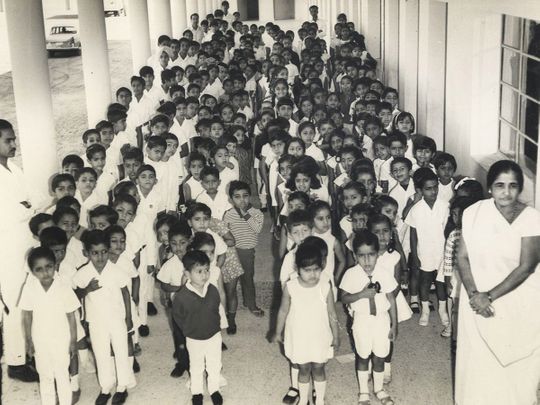
Dubai: As the UAE celebrates 50 years of its federation, it is worth looking at how the oldest Indian school was set up in the emirate.
Girish Jethwani, chairman, and Punit MK Vasu, CEO of The Indian High Group of Schools, who traced the journey of the school, said the need for a school among Indian expats was first felt in 1957. “There was a lack of facilities for the children of Indian families who had landed on the shores of Dubai,” said Jethwani.
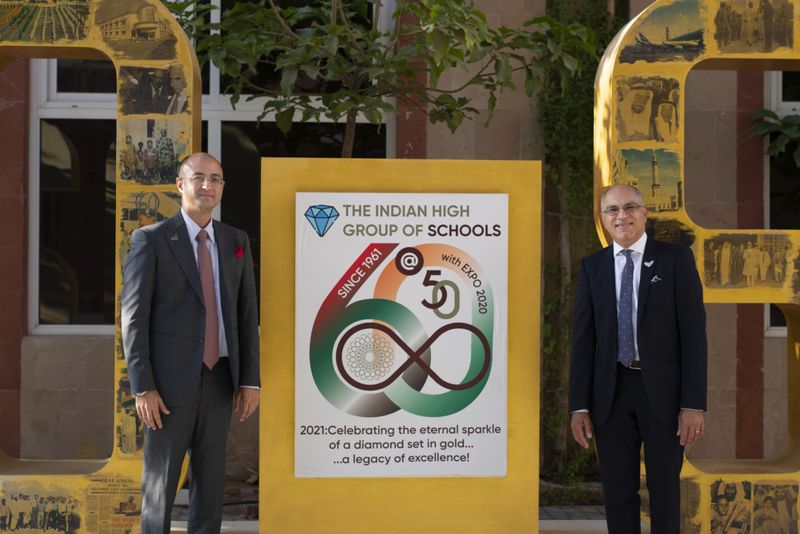
According to him, an Indian expat Hemkala Behn started giving private tuitions to children in her apartment. “The word spread soon about a modest ‘school’ started by ‘Behn’ and more families started sending their children for studies.”
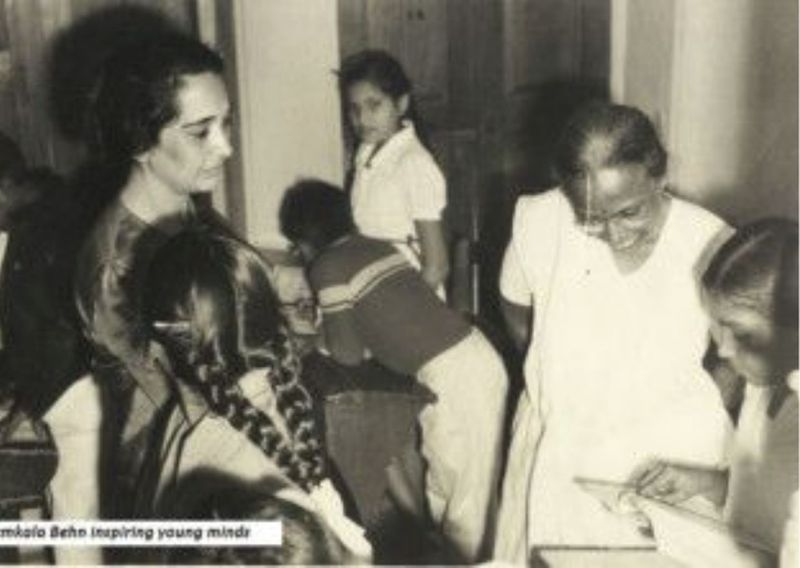
Behn approached the then chairman of the Indian Association, Maghanmal Pancholia, and urged him to set up a proper school for Indian expat children in Dubai.
The Indian High School (IHS) began its operation in 1961. It was called “Bharat Vidyalaya”.
“The primary operations started in a small villa in Bur Dubai with less than 10 students and one teacher. The fee was Rs5 [worth just 25 fils today] per month,” said Vasu.
Growing community
Soon the villa in Bur Dubai was not enough to accommodate the growing number of children being enrolled.
Pancholia, a businessman himself, reached out to other like-minded entrepreneurs from the Indian community and the school received a bigger premises. “The school shifted from the villa in Bur Dubai to a rented building near Dubai Museum,” said Jethwani.
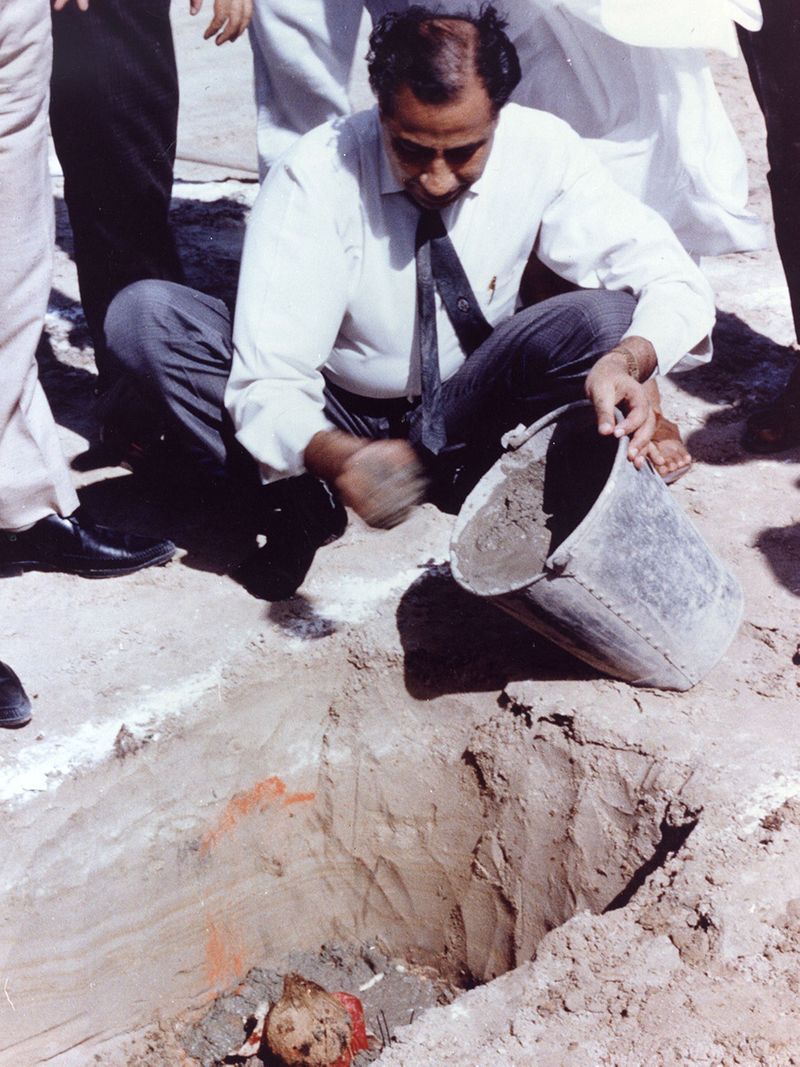
He added: “The late ruler of Dubai, Sheikh Rashid bin Saeed Al Maktoum, magnanimously granted a 332,486 square feet plot for the construction of a modern school building.”
Vasu said while the saga of the Indian school began in 1961 at the Bur Dubai villa, it journeyed onward with the laying of the foundation stone on the new campus.
First batch
A year later in 1975, the school became affiliated with the Central Board of Secondary Education (CBSE), New Delhi, and presented its first batch of 23 students for the All India Secondary School Examination in April 1977.
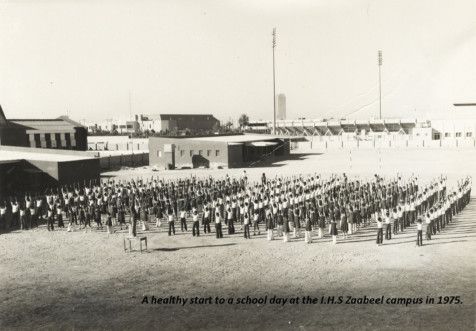
“In April 1979 the school presented its first batch of students for the All India Senior School Certificate Examination. It was a milestone in the history of the school,” said Jethwani.
In subsequent years, the school continued to grow and its oldest campus in Oud Metha was built on land donated by the late Shaikh Rashid bin Saeed.
“Today, we are proud to have three campuses and a total student strength of 13,000. Many Indians look for the highest quality education that is international in outlook and yet attached to traditional Indian roots. The IHS is that,” said Jethwani.
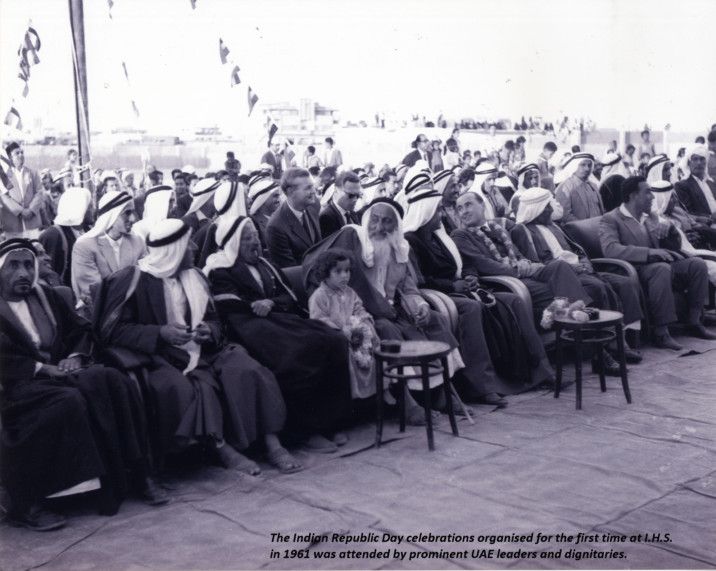
Putting it all into context
The Indian High Group of Schools is led by Jethwani. He is the son of the late businessman GB Choithram Jethwani. Jethwani is the youngest chairman to hold the position at The Indian High Group of Schools. Jethwani – a graduate of the renowned London School of Economics and Political Science – also serves in advisory capacity across various philanthropic institutions internationally and in the UAE.
Speaking about his late father, Jethwani explained that the Geebee Group of Companies was the “only company” that used to import cement and concrete. “My father was here and dealing in cement, steel and heavy machinery. We were quite involved in the local business including building of the Maktoum bridge.”
Vasu said: “The reason why we are giving this background is because for a school to run successfully, it needs a critical mass of people. Now how do you get the people? Only if there are businesses and jobs. So thanks to people like the chairman’s father and other renowned expat businessmen in the UAE, more Indians came to live in the UAE. The schools started getting fuller.”
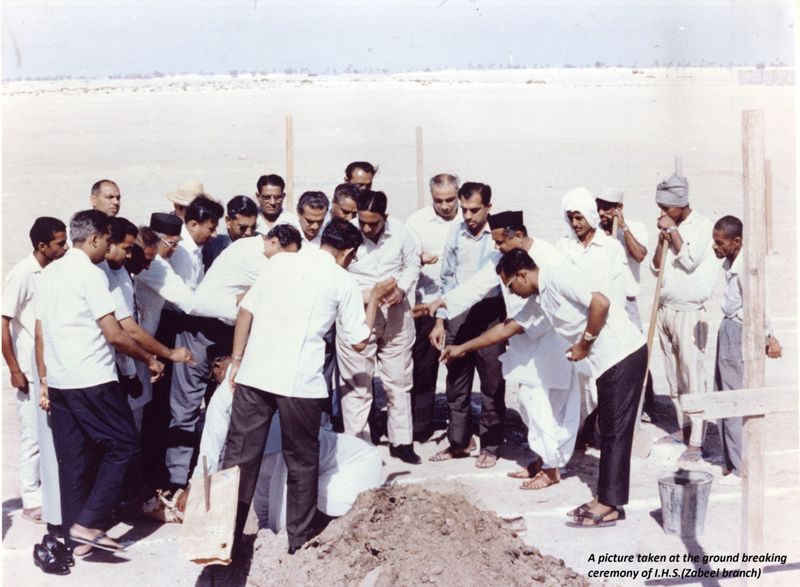
Ethos of the school
The Indian High Group of schools is a “not for profit entity”. Vasu said: “This means we keep our fees low and very affordable. This is one of the reasons we have so much demand. Having said that, we take pride in delivering excellence and this is proof with our students doing exceedingly well in the exams.”
Jethwani added: “Education is not just about enrolling A-grade students just for the good reputation of the school. It is about enrolling B-grade students as well and convert them to A-grade students. This is why in fact we have a lottery system to given admissions to our school. We also think it is a fair way as our admissions wait lists run into thousands.”
Rising to the pandemic
Jethwani recalled: “I remember when we went into the lockdown, it was March 2020. We all were working from home. Our new term begins in April and it was critical we adapted to the new online teaching methods ASAP. The CEO and our team all sat together having long conversations on how to do this. Full credit to Vasu and the senior leadership team. They did a spectacular job. They could not have done anything better. Just imagine our hard work paid off and the KHDA gave us the highest rating during the pandemic.”
Vasu said the pandemic posed its fair share of challenges. “As a not-for-profit school, we had to adapt delivering excellence in the most affordable manner, that too in the all new digital and online way. We gave away many e-books and learning apps for free to our students. While other schools charged students for this, we refrained from it.”
The school trustees were also insistent on not cutting the salaries of teachers. “It was a collective decision we took.”
Helping parents
Vasu said the school also offered four types of financial relief to parents. “We staggered fee payments. So parents could essentially pay their fees monthly. The school tied up with a bank for interest-free loans to be granted to parents so they could pay their child’s school fees. We also came up with a bursary plan for parents going through a tough financial situation. Lastly, we offered need-based admissions for needy students and parents. I cannot tell how many parents thanked us for this. Many even said our aid helped them to stay back in the UAE as education is one of the highest expenses for expat parents in the UAE.”
The next 50 years
Jethwani said: “To deliver excellence as we have been doing and keep a close eye on development in education as we have been doing already.”
Vasu said: “To adopt to changes as when necessary. We will strive to make all rounded students.”

